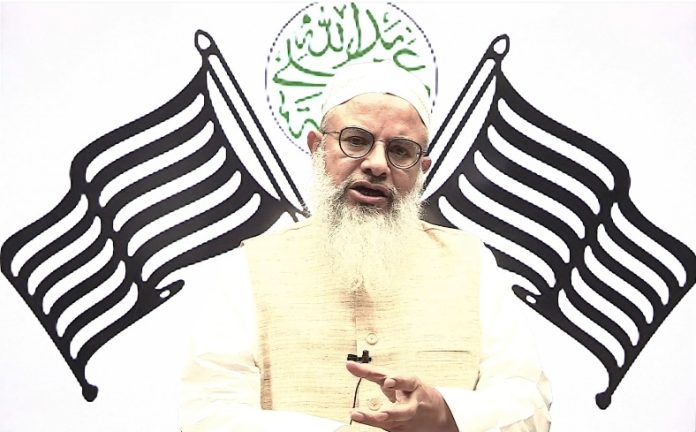By Abdul Bari Masoud
New Delhi, July 12: In a letter sent on Thursday to the Chief Secretary of Uttar Pradesh, Jamiat Ulama-i-Hind (M) urged the state BJP government to immediately revoke the directive concerning madrasas. The organization declared the order unlawful, arbitrary, and unconstitutional, arguing that it infringes upon the fundamental rights of the Muslim community enshrined in the Constitution of India.
Maulana Mahmood Asa’d Madani, president of Jamiat, also wrote to Additional Chief Secretary/Principal Secretary of Minority Welfare & Waqf UP, Director of Minority Welfare, UP, and National Commission for Protection of Child Rights in New Delhi, asking them to refrain from taking this unconstitutional action.
On June 26, the UP Government issued an order directing non-Muslim students enrolled in recognized and assisted madrasas to transfer to government schools, as per the communication of the child panel. The order also instructed students from unrecognized madrasas to enroll in government elementary schools. Uttar Pradesh hosts the largest number of independent madrasas, including the renowned Darul Uloom at Deoband and Nadwatul Ulama. Consequently, this decree will adversely affect thousands of these madrasas.
The July 6 letter of National Commission for Protection of Child Rights (NCPCR) appears to be the basis for the ruling. The NCPCR Chairperson has been notably zealous in addressing the madrasa education over the past year. Evidence suggests that NCPCR abused its authority and violated constitutional safeguards provided under Part III of the Indian Constitution.
The Jamiat President stated that the state authorities cannot be ordered by the Child Panel to force children of aided and recognized institutions (in this case, madrasas) to separate non-Muslim students based solely on their religious beliefs. The directive is targeted, nefarious, and predicated on the unlawful actions of an individual in charge of a statutory body.
Secondly, the rationale behind the Commission’s choice to target Uttar Pradesh specifically, over other states, remains unclear. While mapping out madrasas might be standard procedure under normal conditions, in this context, it is evidently related to the previously mentioned unconstitutional actions of the Commission’s chairperson.
Also, various state statutes regulate madrasa education in UP and other states. The country’s madrasa education system significantly impacts society, empowering beneficiaries in education and contributing substantially to the broader movement of affirmative action undertaken by the central and state governments.
A citizen’s public interest lawsuit addressing madrasa education, in response to a similar NCPCR comment, is currently before the Supreme Court following an adverse order from the High Court of Allahabad. A detailed interim directive has stayed the High Court’s judgment that interfered with the Madrasa Act’s statutory regulations.
The Yogi government has ordered officers to forcibly transfer students from unrecognized madrasas to government primary schools for formal education. This move is viewed as an overreach, given that these madrasa establishments are private, independent institutions. The Constitution guarantees minorities the freedom to establish and run educational institutions of their choosing. Article 29 ensures cultural rights, allowing every segment of the population to maintain its cultural customs and rights.
Furthermore, the choice of education is a right of the child and their parents, which the state cannot revoke. Section 1(5) of the Right to Free and Compulsory Education Act, 2009, specifically exempts ‘Madarsas, Vedic Pathsalas, and other institutions primarily imparting religious instruction’ from its application, recognizing the validity of madrasas. Imparting religious instruction is a protected fundamental right of minority religions, as is the right of students to receive traditional instruction in madrasas. Therefore, the order infringes upon these protected fundamental rights of the Muslim community.




